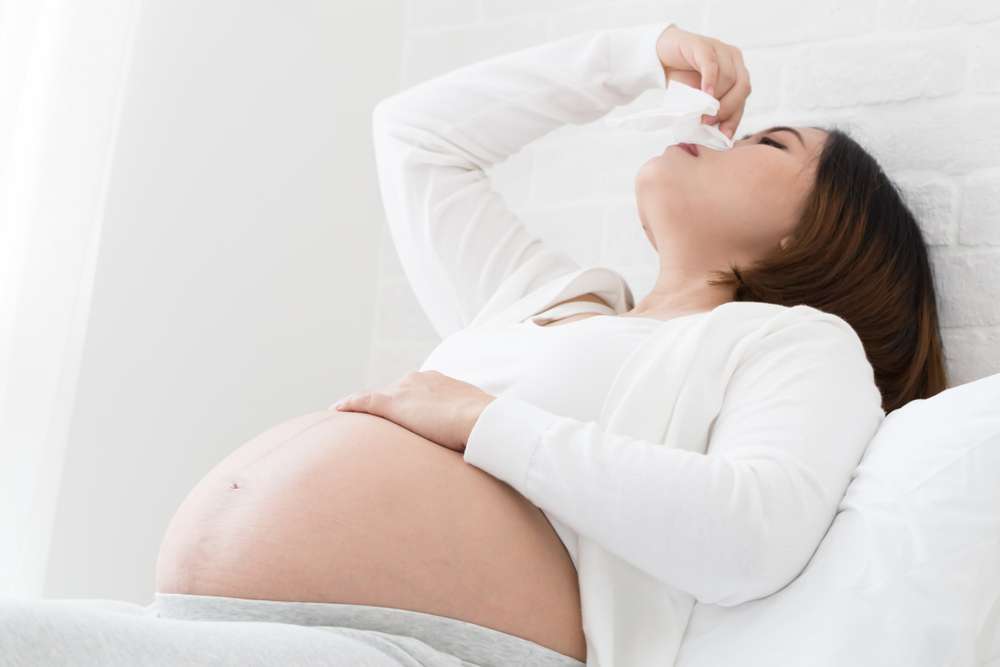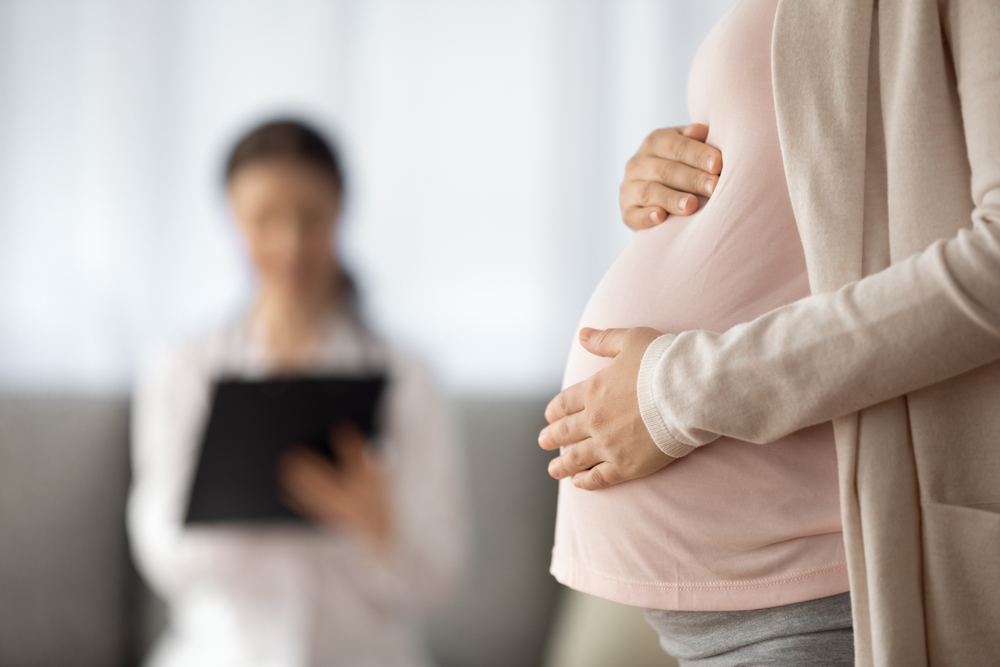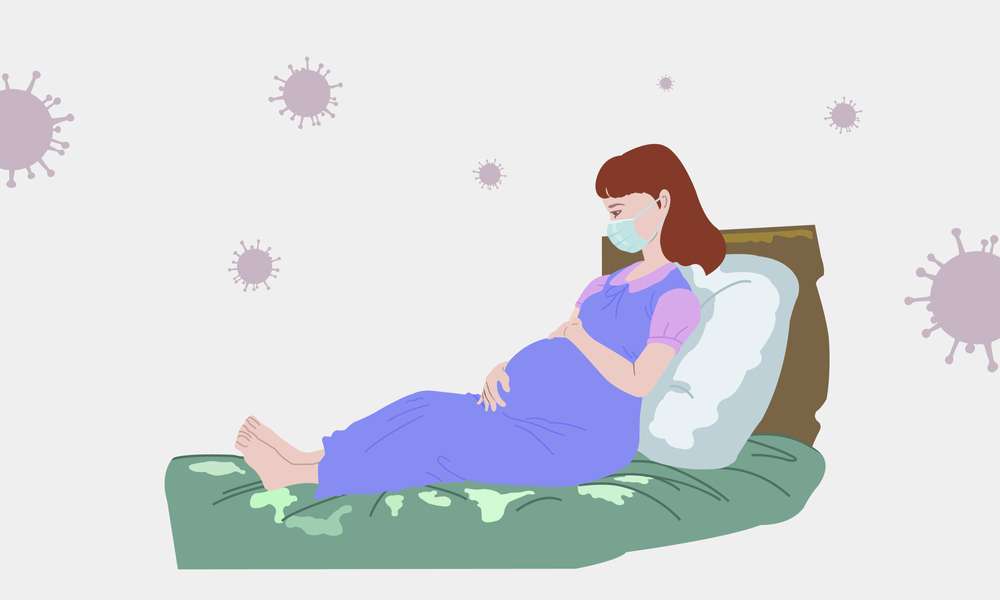Bleeding during Pregnancy
Pregnancy is a wonderful journey filled with physical and emotional changes. While most of these changes are normal and expected, bleeding may occur in some situations, which causes concern among expectant mothers.
Light bleeding during pregnancy:
- Although mild bleeding during pregnancy is unsettling, it is not uncommon.
- Spotting is typically defined by a few drops of blood on your underwear or after you wipe after using the restroom.
- The blood’s color might range from pinkish to light brown.
- Spotting might be caused by implantation hemorrhage, hormone changes, or a sensitive cervix.
- Implantation hemorrhage occurs when a fertilized egg clings to the uterine lining.
- This occurs 6 to 12 days after conception, around the time of your expected period. Implantation bleeding is usually lighter and shorter in duration than menstrual bleeding.Hormonal changes during pregnancy may also produce light bleeding.
- Increased blood flow in the area can result in a sensitive cervix that is more prone to bleeding.
Heavy bleeding during pregnancy:
- While some bleeding is normal during pregnancy, heavy bleeding is cause for concern and requires immediate medical attention.
- Heavy bleeding during pregnancy could indicate a more serious problem, such as a miscarriage or an ectopic pregnancy.
- When a fertilized egg implants outside of the uterus, most usually in the fallopian tube, this is referred to as an ectopic pregnancy.
- This is a perilous circumstance for both the mother and the newborn, and it demands quick medical assistance.
- Other potential causes of significant bleeding include placenta previa and placental abruption, both of which require immediate medical attention.
- Heavy bleeding during pregnancy should never be overlooked because it may suggest an underlying problem that necessitates rapid medical attention.
Bleeding during pregnancy color:
- The color of the blood during pregnancy can reveal important information about its origin and its consequences.
- Lighter blood colors, such as pink or light brown, are frequently connected with spotting and might be regarded reasonably harmless.
- Darker reds, on the other hand, may signal more severe bleeding and should be handled seriously.
- A placental problem or other potentially serious concerns may be indicated by dark crimson blood.
- Consult your healthcare professional to evaluate the various reasons of the bleeding depending on its hue.
Bleeding during pregnancy at 6 weeks:
- Expectant women may experience anxiety and stress if they begin bleeding at 6 weeks of pregnancy.
- The most prevalent cause of bleeding at this period is implantation bleeding.
- Implantation bleeding typically occurs around the time of your expected period and is less intense than menstruation.
- However, any bleeding after 6 weeks should be discussed with your doctor as soon as possible to rule out other possible reasons and safeguard the health of both you and your baby.
Is Bleeding During Pregnancy Normal?
- Although not unheard of, pregnancy bleeding is not considered the norm in a healthy pregnancy.
- Minor spotting or light bleeding is typical; however, persistent or severe bleeding should be avoided.
- Always visit your healthcare provider if you experience any bleeding during your pregnancy to rule out any potential problems.
How Much Bleeding During Pregnancy is Normal?
- Because it varies from woman to woman, determining what constitutes “normal” bleeding during pregnancy can be challenging.
- Mild spotting or minor bleeding that disappears quickly is considered typical.
- However, any significant bleeding that is accompanied by severe cramping or stomach pain, or that lasts for a lengthy period of time, should be assessed by a healthcare practitioner right away.
- Trust your instincts and consult your doctor if you have any concerns or queries.
How to Stop Bleeding During Pregnancy?
- It is vital to understand that you cannot stop bleeding on your own while pregnant. Certain approaches, on the other hand, may help to regulate and relieve bleeding.
- Rest and avoid intense activity to reduce the danger of the bleeding worsening.
- You should refrain from engaging in sexual behavior until you have spoken with your doctor. Sexual activity may aggravate your bleeding and put undue strain on your body.
- Hydrate adequately, as dehydration may contribute to heavy bleeding.
- Seek medical attention and follow your doctor’s advice to successfully address the underlying cause of the bleeding.
Cramping and Bleeding During Pregnancy:
- Cramping and bleeding are common during pregnancy, although they may not always signify a problem.
- Mild discomfort is normal throughout pregnancy as your uterus grows and your ligaments stretch to accommodate the growing baby.
- However, if the cramps and bleeding grow severe or are accompanied by significant bleeding, you must see your doctor right once.
- A doctor’s consultation is required to rule out any potential problems and ensure your and your baby’s safety.
Normal Bleeding During Pregnancy:
It is critical to note that most women do not have “normal” pregnancy bleeding.
While a small percentage of pregnant women may experience minor spotting or bleeding with no adverse effects, it is vital to consult with your doctor to establish the underlying cause. Based on your specific circumstances, your healthcare professional may assess the issue and provide specific guidance.
What Causes Bleeding During Pregnancy?
Several reasons can cause pregnancy bleeding during pregnancy, each with its own level of worry and potential consequences. Some of the most common causes are as follows:
- When a fertilized egg clings to the uterine lining, early pregnancy implantation hemorrhage occurs.
- Hormonal shifts can occur during pregnancy, resulting in minor bleeding.
- A cervix that is exceedingly sensitive and easily bled.
- Infections or diseases spread through sexual contact.
- Ectopic pregnancy is a pregnancy in which the fertilized egg implants outside the uterus.
- Miscarriage or imminent miscarriage.
- Placenta previa, also known as placental abruption, is a dangerous condition that necessitates prompt medical intervention.
Note:
It is vital to make contact with your healthcare provider in order to determine the exact cause of your bleeding during pregnancy and ensure adequate management.
Nose bleeding during pregnancy:
- Nasalbleeds are an unexpected but common occurrence during pregnancy.
- Hormonal changes contribute significantly to nasal tissues becoming more sensitive and prone to bleeding.
- Increased blood volume, particularly in the nasal area, may exacerbate nosebleeds.
- Dry air, both indoors and outdoors, can exacerbate the situation.
- Consider using a humidifier, staying hydrated, and utilizing a saline nasal spray to relieve nosebleeds.
Brown Spotting during pregnancy:
It’s basic to keep informed about the many changes and side effects that can happen during this surprising excursion with regards to pregnancy. Brown spotting is one such symptom that many pregnant mothers worry about. We’ll look at brown spotting during pregnancy and address some of the most common questions and concerns about it in this piece.
Spotting During Pregnancy 1st Trimester:
Many pregnant women are naturally concerned about spotting during the first trimester. Keep in mind, however, that not all instances of spotting are cause for alarm. Here are a some points to consider:
- Light spotting, usually accompanied by a brownish discharge, is quite common throughout the first trimester.
- This could be the result of implantation bleeding, which occurs when a fertilized egg clings to the uterine lining.
- Hormonal changes might cause spotting as the body adjusts to the changes required for a healthy pregnancy.
- Always see your doctor if you have persistent or severe bleeding, since this could indicate an underlying condition that needs to be addressed.
Spotting During Pregnancy:
Various reasons can contribute to spotting during pregnancy. While some may be innocuous, others should be investigated further. Here’s everything you need to know:
- Bleeding after implantation occurs when the fertilized egg attaches to the uterine lining and can cause faint spotting, as previously described.
- Cervical changes: During pregnancy, the cervix changes, which might cause mild bleeding or spotting.
- diseases: Spotting can be caused by diseases such as yeast infections or sexually transmitted infections. To avoid difficulties, it is critical to treat and manage these illnesses as soon as possible.
- Miscarriage or ectopic pregnancy: Spotting can be a sign of a miscarriage or an ectopic pregnancy, however this is not always the case. If you are having severe stomach pain or profuse bleeding, seek medical attention right once.
- Other causes of light spotting include intercourse, intense activity, and even a transvaginal ultrasound. These situations, however, usually resolve quickly and without incident.
Brown Discharge During Pregnancy:
Brown discharge is frequently caused by old blood being ejected from the cervix during pregnancy.While it can be disconcerting, especially when accompanied by spotting, keep the following in mind:
- Brown discharge is usually not a cause for concern because it is usually innocuous and caused by slight cervical discomfort.
- If the discharge is accompanied by discomfort, pain, or a foul odor, you should consult with your doctor to rule out any infections or issues.
Early pregnancy bleeding:
Early pregnancy bleeding can be frightening, but keep in mind that not all bouts are cause for alarm. What you should know about bleeding during early pregnancy:
- It is estimated that 20% of pregnancies experience some sort of bleeding during the first trimester.
- Similar to a period, the intensity of this bleeding can range from minor spotting to substantial flow. Any bleeding while pregnant, on the other hand, should be evaluated by a healthcare professional.
- Keep in mind that each woman’s pregnancy is unique, and while some may experience bleeding, others may not. It is always better, though, to err on the side of caution and seek medical advice.
Bleeding While pregnant:
If you experience bleeding while pregnant, get medical treatment immediately. Here are some of the reasons why seeking medical advice is critical:
- To choose the appropriate course of action, your healthcare professional will consider a number of criteria, including the degree and length of the bleeding, your medical history, and any accompanying symptoms.
- They may recommend ultrasounds, blood tests, or other diagnostic procedures to ensure your and the baby’s health and well-being.
- While pregnant bleeding might be upsetting, many situations have a favorable outcome. Your healthcare practitioner will provide guidance and assistance throughout the process.
7 Weeks Pregnant Brown Discharge When I Wipe?
Brown discharge after wiping can be especially concerning when pregnant around 7 weeks. However, there are a some issues to think about:
- Because the pregnancy is still in its early stages, brown discharge at this period can still be attributed to implantation hemorrhage.
- Consult your doctor if the discharge continues or if you experience any other troubling symptoms. They can reassure you and ensure that everything is proceeding according to plan.
Period like bleeding during early pregnancy:
Early pregnancy bleeding that resembles a period can be distressing. Here’s everything you need to know:
- Although mistaken period-like bleeding for a menstrual cycle is frequent, it can occur early in pregnancy.
- This bleeding may be lighter or shorter than typical, and it may be associated with other early pregnancy symptoms such as breast soreness or tiredness.
- While brown spotting and bleeding during pregnancy might be alarming, it is vital to be informed and report any concerns with your doctor.
Note:
While brown spotting and bleeding during pregnancy might be alarming, it is vital to be informed and report any concerns with your doctor. Remember that every pregnancy is different, and obtaining medical assistance on time can safeguard the health of both you and your baby. Stay proactive, informed, and enjoy this incredible path to motherhood.
Conclusion:
It is important not to panic if you are bleeding during your pregnancy. While some bleeding is innocuous, some may suggest underlying problems. Remember to call your doctor if you experience any form of bleeding during your pregnancy, no matter how serious it is. Your doctor is the best resource for assessing your situation, giving necessary aid, and ensuring your and your child’s health.




